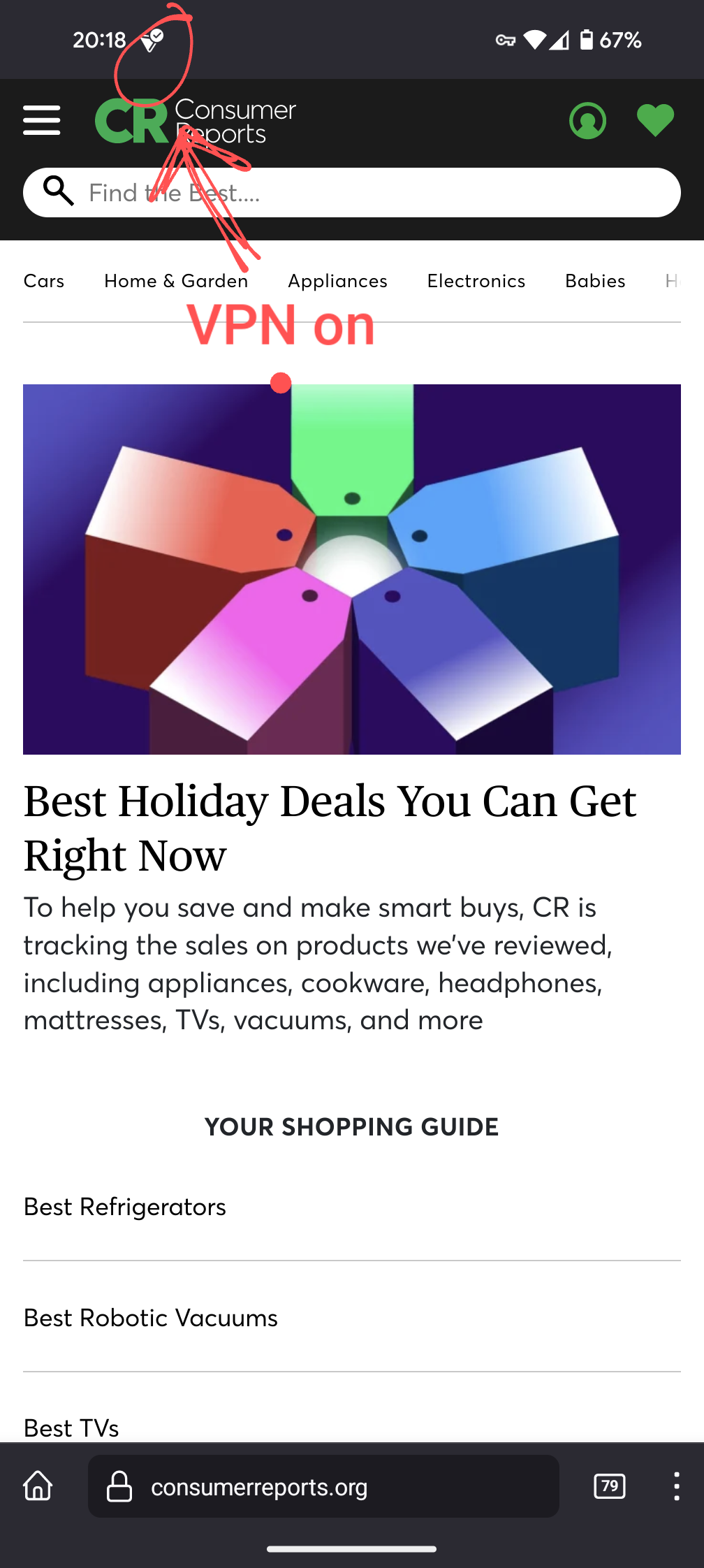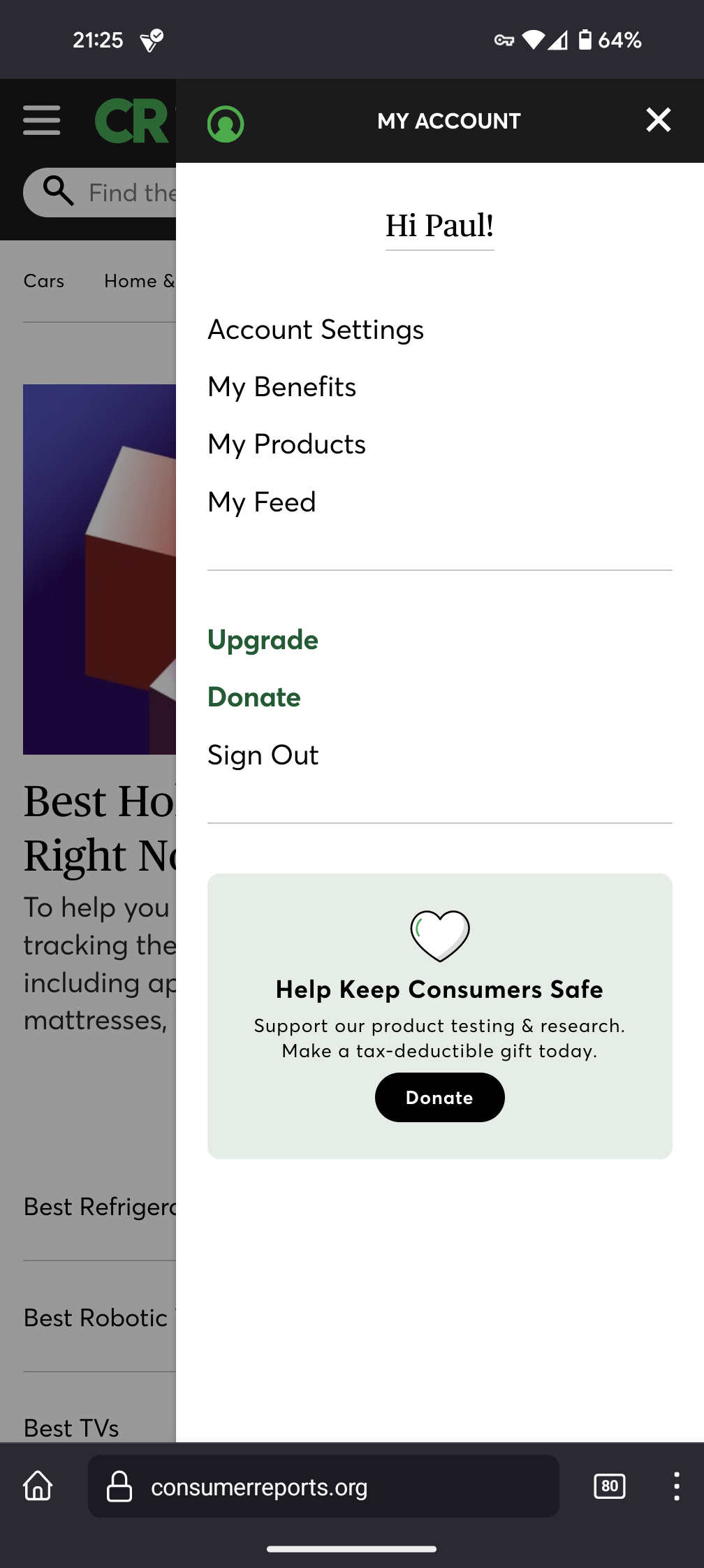deleted by creator
Originally, I was just planning on being mildly infuriated, but thank you for the in-depth explanation. Networking is my weakest nerd-stat and its truly interesting. I’ll try a few other servers and see if they are blocked. My VPN provider is known for privacy, so it wouldn’t surprise me if someone is doing sketchy things on there. Then again, it’s only a mild annoyance and an irony since Consumer Reports have reviewed the same provider I have been using.
It’s ironic but makes complete sense if we’re assuming they blocked the VPN server IP.
Say I’m a malicious user who’s using VPN server #22 from ProtonVPN (my personal favorite provider). The victim (CR in this case) isn’t going to see they’re being attacked by someone on VPN server #22 from ProtonVPN, they’re going to see the IP of that server and nothing else.
It really doesn’t matter if they did have that information because no human will be involved. The traffic will be marked as malicious and blocked by some software designed to monitor, identify, and block traffic that looks malicious. This is almost always done based on IP. It’s usually reversed in a few days though because IP addresses change frequently, so there’s no sense in continuing to block traffic from an IP you can’t guarantee belongs to the original attacker.
Couldn’t there be some alternative like having VPNs provide a standardized API for websites to report bots from using anonymized data take from the HTTP requests? Then the VPN can block the user after reviewing the usage data they have.
deleted by creator
That would require the VPN service to keep track of users’ usage and be able to match traffic to user, which most (or most of the big ones at least) very specifically, very on purpose, explicitly say they don’t do, which would be really bad for them if it turned out to be false.
Works for me

79 tabs is a bit much
I just permanently have a ∞ symbol on Firefox Android
Why so many tabs
Because I just close Firefox and move on to another app, I don’t see tabs like on the desktop version and they don’t close when the app closes, so they stay open perpetually until I close them manually.
Why don’t you just set Firefox to close tabs and wipe data on quit. That’s what I do
Cause sometimes I wanna see the tabs again
You people. I don’t understand Tue need for chaos I guess.
Since when does FF on Android have “Close All Tabs on Quit”?
I know mull has it in settings. I don’t know about stock firefox
I have it set up to close any tabs that are 2 weeks old.
Why don’t you just close them immediately?
Because that’s an extra step. Also, I might need it again in the next 2 weeks.
Can’t you just reopen them?
Sure, if I do the same search and click on the same link again. Or I could type “lasa” and tap the button to switch to the tab with the lasagne recipe I have open.
Finding them again may be a hard task.
I keep tabs open because I hope to finish reading them, sometimes I even do
I’m guessing you’re not logged in. The landing page works, but the members area, where the full ratings are, will show the above screen when I’m on VPN.

Hi Paul!
It’s my friend’s login 😉
Sure Paul
Paul is the best.
Interesting. I know sometimes certain VPNs work with Netflix while others get flagged as VPNs. I wonder if your provider just has some fresh IPs that haven’t been added to whatever block lists these companies use.
You might be using an endpoint that people have used for attacks recently. I think all of the website protection tools have some sort of temporary IP blocking mechanism.
Nice to see Firefox in the wild 🙃
We’re on lemmy/kbin, Firefox and its forks are probably the most common browser here.
I knew this comment was coming. :) FF Crew Represent!
52 tabs?!
After 99 you just get a ♾️ symbol
On Chromium-based browsers, after 99, you get “:D”.
That’s right, Chrome had the smiley before I deleted it from my phone. FF uses the infinity sign. Thanks for catching that.
Dunno about op, but for me: various self-hosted interfaces, info for projects in-progress (easily 5-10/project), a few different forums I frequent, interesting stuff I don’t have time for now but will return to when I do.
Bookmarks get lost/forgotten as I don’t make a point to view them to remember them. Open tabs remind me of their contents every time I switch tabs so I’m much morr likely to return to them. I’m also lazy and don’t want to re-open the same sites I frequent nearly daily.
Currently only have 21 open, but that’s been much larger.
That’s pretty good for me. Usually I have the smiley face and just mass delete my tabs every time I flash my device.
I also had this issue. At least tell me why you are blocking me!
 Working fine for me!
Working fine for me!Why do you have 52 tabs open. That might be a problem.
I currently have 63 in open in Mull with no issues.
Why
Why not
Because your screenshot hurts me
Trust me it’s normal
Even when I try not doing it, it still happens










